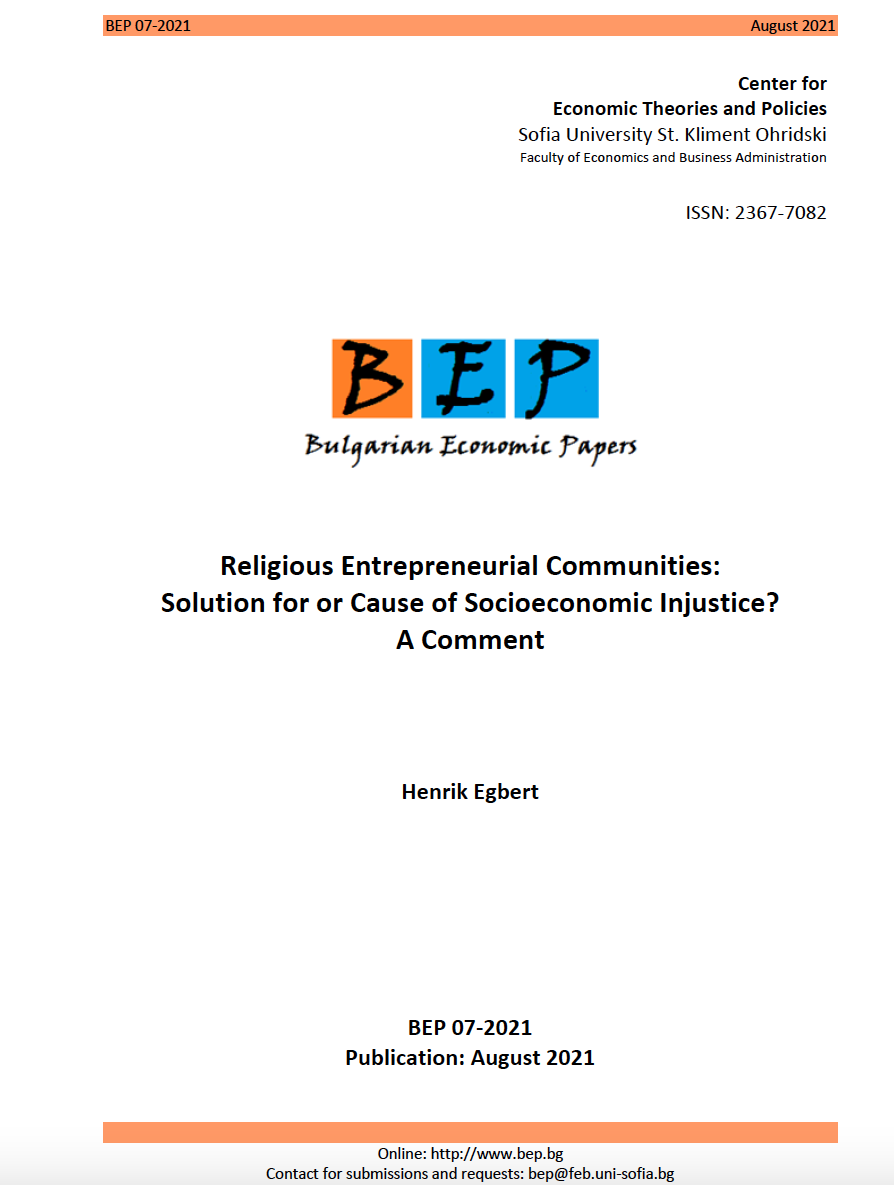Religious Entrepreneurial Communities: Solution for or Cause of Socioeconomic Injustice? A Comment
Religious Entrepreneurial Communities: Solution for or Cause of Socioeconomic Injustice? A Comment
Author(s): Henrik EgbertSubject(s): Economy, Business Ethics, Socio-Economic Research
Published by: Софийски университет »Св. Климент Охридски«
Keywords: entrepreneurial communities; socioeconomic justice; community-based entrepreneurship; entrepreneurship-based policy; clubs; networks
Summary/Abstract: Certain religious entrepreneurial minded communities are highly successful. It is tempting to assume that the underlying social mechanism of business success can be used as a blueprint for the development of larger social entities. Recently, Javaid, Shamsi and Hyder (2020) have argued that inefficiencies of markets and bureaucracies may be avoided if religious entrepreneurial communities are considered an alternative for members’ business investment, capital- and expertise-support to businesses, and the redistribution of wealth in favor of economically vulnerable community members. Consequently, the title of their paper is “Religious entrepreneurial communities as a solution for socioeconomic injustice”. I address this problematic position by an extended comment and point out inefficiencies induced by such an approach. I apply the concepts of networks and clubs to tackle problems of religious entrepreneurial communities as sub-groups of larger social entities. Individual beliefs, individual preferences, and norms of cooperative behavior can occur among members of any community, with or without common religious beliefs. Consequently, a shift from the a religious, market-oriented form of economic organization towards specific sets of religious beliefs will not, by itself, endanger business success. These issues require considerable attention before a transfer of behavioral pattern prevalent in small communities can be applied to larger groups. I emphasize the danger of generalizations from small case study results of specific entrepreneurial communities to larger social entities, such as societies.
Journal: Bulgarian Economic Papers
- Issue Year: 2021
- Issue No: 7
- Page Range: 2-14
- Page Count: 13
- Language: English

